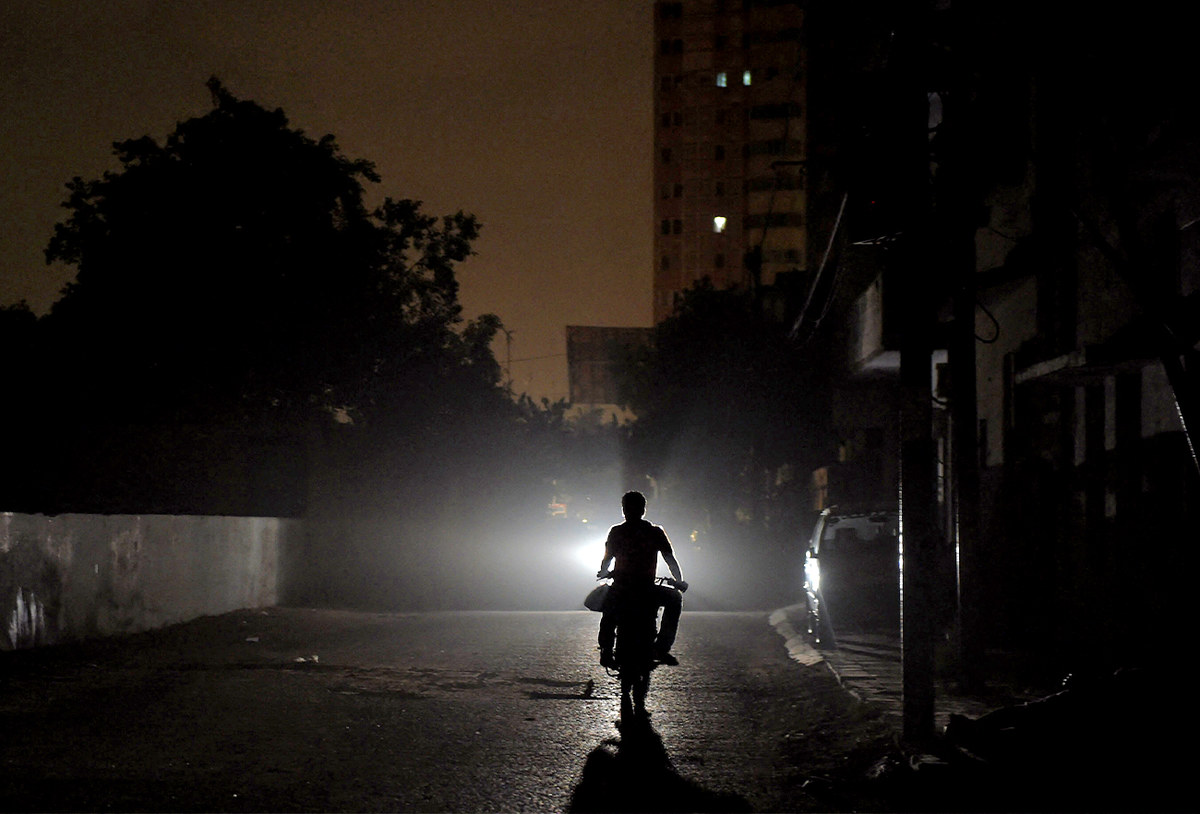KARACHI: An ongoing conflict between two utility companies in southern Pakistan has led to prolonged power outages in the country’s most densely populated Karachi city, making residents and traders say the situation has been making their lives and businesses suffer.
The conflict relates to outstanding dues, with K-Electric (K-E), which generates, transmits and distributes electricity in Karachi, owing Rs9 billion to the Sui Southern Gas Company Limited (SSGCL) for the months of May and June.
The situation has reached a stage where Prime Minister Shehbaz Sharif had to take notice of it, seeking an amicable resolution to the dispute which has been affecting the lives of millions of people and disrupting work at thousands of industrial and commercial units spread across the city.
Pakistan’s textile mills’ association urged the government in the beginning of the month to ensure low cost and smooth supply of electricity and natural gas to Karachi, the country’s commercial capital, to prevent it from turning into a “graveyard of industries.”
“Although there has been some improvement in the last couple of days, yet we don’t get electricity in trade centers of the city for four to five hours,” Atiq Mir, president of Karachi’s top union of merchants, told Arab News.

A Pakistani motorist drives on an unlit street during a power cut in Karachi, Pakistan, on July 8 2015. (AFP/File)
He said K-E was unable to maintain sustained power supply, adding it was hurting businesses which were already suffering due to the fragile situation of Pakistan’s national economy.
K-E recently made partial payment of Rs3.2 billion in June to the gas company before adding another Rs1 billion to it on Wednesday.
Mumtaz Ansari, a tailor in downtown Saddar, said power outages, especially before the Muslim festival of Eid next month, was severely affecting his business.
“The price hike [in power tariffs] has already made things difficult for us,” he told Arab News. “Now this load-shedding has also started depriving us of three to five hours of work on a daily basis.”
Ansari said he could not afford to buy a generator and pay for its fuel.
In some parts of the city, residents complained they were deprived of electricity for no less than 12 hours.
“The people of our locality have to face power outages four times a day for three consecutive hours,” said Faizullah Khan who lives in Gulshan-e-Areesha colony.
Rabia Gul, a resident of Gulistan-e-Jauhar area, said prolonged power cuts was causing great distress to many people.
“We cannot wash our clothes or cook anything,” she said. “And then we see elderly members of our family getting sick due to extreme weather conditions.”
The situation recently drew attention of lawmakers in Karachi who requested a special meeting at the energy ministry.
According to Usama Qadri, a National Assembly member present at the official gathering, K-E officials said there would be more power cuts if their company did not get adequate amount of natural gas.
“As per the agreed formula, the SSGCL has to provide 190 mmcfd [million cubic feet per day] of gas to K-E,” he said. “But currently, it is supplying less than 90 mmcfd to the company which is resulting in these outages.”
In a written reply to Arab News, K-E chief executive officer Moonis Alvi said his company had requested the energy ministry for urgent support to ensure the release of about Rs25 billion in net receivables on account of tariff differential subsidies.
“These funds are critical for the continued purchase of fuel to sustain Karachi’s power demand,” he said.
In a recent statement, the SSGCL described K-E as a “defaulter” while warning of reducing gas supply to it under the circumstances.

















